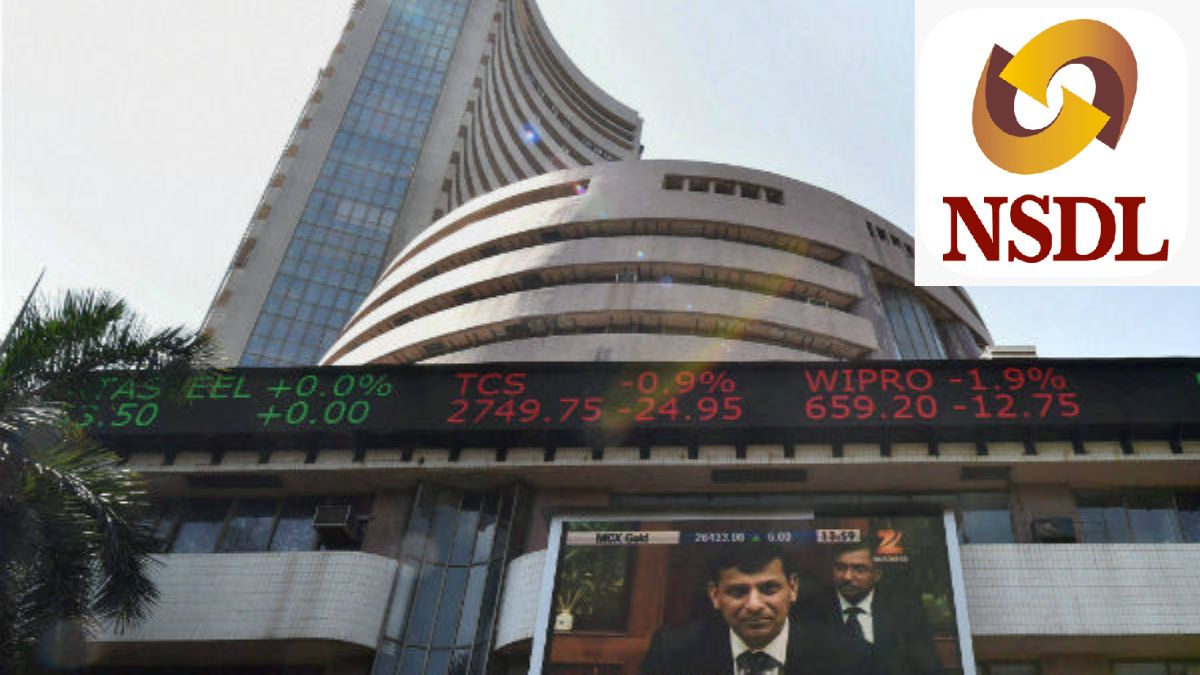The much-anticipated initial public offering (IPO) of National Securities Depository Limited (NSDL) is just around the corner and investors are eagerly awaiting the key details, including the gray market premium (GMP).
The IPO is expected to open on March 25, 2025 and close on March 31, 2025 (tentative). With a strong market position and a proven track record, NSDL’s IPO has attracted significant interest from retail and institutional investors.
NSDL IPO Details

- IPO Open Date: March 25, 2025 (Tentative)
- IPO Close Date: March 31, 2025
- IPO Type: Book Built Issue
- Issue Size: Approx. ₹[.] Crores
- Fresh Issue: Approx. ₹[.] Crores
- Offer for Sale (OFS): 57,260,001 equity shares
- Face Value: ₹2 per share
- Price Band: ₹[.] to ₹[.] per share
- Retail Quota: 35%
- QIB Quota: 50%
- NII Quota: 15%
- IPO Listing: BSE & NSE
- IPO Allotment Date: April 2025
- IPO Listing Date: April 2025
What is NSDL?
Founded in 1996, NSDL is India’s first and largest securities depository and plays a key role in the digitization of stock market transactions. It offers services that enable investors to hold and trade securities electronically, eliminating the need for physical share certificates.
As of March 31, 2023, NSDL has 31.46 million active demat accounts with assets worth ₹ 43,060.50 billion. The major shareholders include NSE, IDBI Bank and HDFC Bank.
NSDL IPO GMP Details
The gray market premium (GMP) is an indicator of investor sentiment prior to an IPO. Currently, the GMP is not officially reported by NSDL. However, analysts expect a strong premium close to the IPO date given the company’s market dominance and financial performance.
Investors tracking the GMP should keep an eye on updates to identify potential upside.
Financial Performance
NSDL has shown consistent revenue and profit growth, making it an attractive IPO candidate:
- Revenue (FY23): ₹1,099.81 crore (vs. ₹789.94 crore in FY22)
- Profit (FY23): ₹234.81 crore (vs. ₹212.59 crore in FY22)
With a stable revenue model that includes transaction fees, account maintenance, and issuer charges, NSDL is well-positioned for future growth.
Why is NSDL Going Public?
NSDL’s IPO is a 100% Offer for Sale (OFS), i.e. the existing shareholders — such as IDBI Bank, NSE and Union Bank of India — are selling their shares. No new shares will be issued. The IPO is in line with SEBI regulations on individual ownership, which stipulate that market infrastructure institutions must limit individual ownership to 15%.
Subscription Expectations & Market Sentiment
Market analysts expect strong demand from all investor categories:
- Qualified Institutional Buyers (QIBs): Likely strong interest due to NSDL’s dominant position.
- Non-Institutional Investors (NIIs): Expected to participate strongly if GMP remains positive.
- Retail investors: Likely to respond well due to NSDL’s brand value and market presence.
Expected Listing Gains & Investment Potential
- Short-term gains: Analysts forecast 10-20% price gains if demand remains strong.
- Long-term investment: Given NSDL’s critical role in the Indian financial ecosystem, investors can expect stable long-term growth.
- Market volatility: As with any IPO, market conditions will affect the performance of the listing.
Also Read:
- Pi Network Launches PiFest 2025 to Boost Real-World Crypto Adoption
- Tata Capital Plans IPO: What Investors Need to Know Now!
How to Apply for NSDL IPO?
Investors can apply via:
- ASBA (Application Supported by Blocked Amount) through your bank’s Net Banking.
- UPI based IPO applications through apps like Zerodha, Groww and Paytm Money.
- SEBI registered stock brokers.
Final Thoughts
With strong financials, a monopoly-like position and growing investor interest, NSDL’s IPO is shaping up to be one of the most anticipated offerings of 2025. While the exact GMP is yet to be determined, investors should monitor the subscription status and demand trends before making a final decision.
Stay tuned for more updates on the GMP, IPO price ranges and listing day performance!
Disclaimer: This post is just for your information and shouldn’t be taken as investment. Before deciding what investments to make, investors should talk to financial experts.

